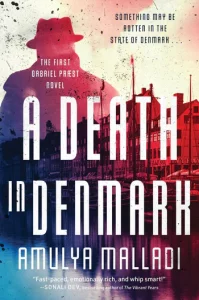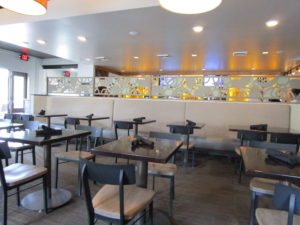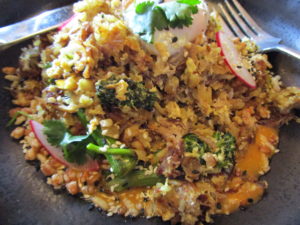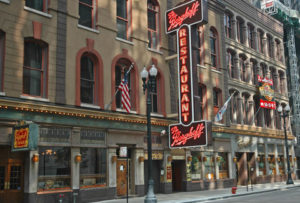Danish Gabriel Præst is not your typical PI. He’s intellectual, dandyish, and upscale. He quotes Kierkegaard and Sartre, wears designer clothes, loves fine wine and good whiskey (though he’s also a beer aficionado). His high-end coffee maker likely costs several thousand dollars and he’s fastidious in other ways, too: he’s been working for a decade on remodeling a townhouse he inherited. Latest DIY problem? Locating more hard-to-find 17th-century Spanish tiles to finish the bathroom that already has a wildly expensive antique French claw-foot tub.
Præst’s main clients are corporate law firms in Copenhagen, and his brief is corporate theft, embezzlement, industrial espionage, corporate corruption, insurance fraud and that old PI standby, adultery. The man’s personal life is intriguing. He has a woman journalist friend-with-benefits, gets along amicably with the mother of his daughter, really likes her new husband, and even rents space in the husband’s law firm building.
Unlike most crime fiction–whether screen or book–his daughter in this book is not troubled, difficult or any other cliché of the genre. In fact, she’s “morally sound, smart, self-aware and courageous.”
The story begins when Præst has been asked by an ex-lover to investigate the case of a Muslim Dane convicted of killing a right-wing politician. He accepts the case because he’s still under the spell of this ex-. She’s “the one who got away.”
In a classic genre scene, he’s warned off the investigation by a tough advisor to the Danish prime minister himself. Of course nothing will stop Præst and every step of his investigation seems to expose right-wing bigotry against Muslims living in Denmark even if they were born there. As the investigation unfolds, we learn that the victim was secretly working on a book about Denmark’s time under German occupation that might reveal a less-than-heroic role for some important Danes.
The characters are vividly described, the translation from Danish feels smooth and the story is compelling, though readers might feel the author overdoes Præst’s foodie lifestyle since it feels like he’s eating or drinking on almost every page. And awareness of his “white privilege” is practically a flag he waves as if he has to prove some kind of point. A careful editor might have suggested a lighter touch, and did he need to be beaten up so often–and shot too?
However, the author does a good job of leavening this mystery with humor. There’s a constant joke that everyone refers to the mother of Præst’s child as his “ex-wife” when they were never married and it frustrates them. And some of the best parts of the book are Præst’s sarcastic observations about the difficult weather in Denmark and complaints about people lacking style. Readers who don’t find the food references overdone may feel like they’ve been given a welcome tour of cool places to eat and drink in Copenhagen. As well as a style guide for men who want to look like what one character calls “a southern Swedish metrosexual.”
Lev Raphael has reviewed crime fiction for The Detroit Free Press and is the author of the Nick Hoffman mystery series.






